Discover the most profound lessons from Jordan B. Peterson’s “12 Rules for Life.” These powerful quotes and insights will guide you toward a more meaningful and balanced life.
Jordan B. Peterson’s “12 Rules for Life” offers timeless wisdom for anyone seeking to live with more purpose, resilience, and integrity.
In this post, we explore the core teachings of the book by presenting its most impactful quotes and practical lessons. Each rule is paired with a simple explanation to help you easily understand and apply these principles in your daily life.
Quotes and Lessons from ’12 Rules for Life’
These quotes capture the essence of each rule, highlighting Jordan B. Peterson’s insights on living a life filled with meaning and purpose. Let’s explore the wisdom behind these rules.
1. “Stand up straight with your shoulders back.”
This rule encourages us to adopt a posture of confidence and self-respect. Standing up straight is not just about physical posture; it symbolizes taking control of our lives, embracing responsibility, and facing challenges head-on. When we project confidence through our body language, we’re more likely to feel it internally, which impacts how others perceive and interact with us. By holding our heads high and maintaining a strong stance, we signal to ourselves and others that we are capable of handling what life throws at us.

2. “Treat yourself like someone you are responsible for helping.”
Often, we are kinder and more compassionate to others than to ourselves. This rule asks us to take responsibility for our own well-being with the same care and consideration we would offer to a loved one. It suggests that we recognize our inherent worth and commit to nurturing and supporting ourselves, both physically and mentally. When we prioritize self-care, we build a foundation of strength that enables us to help others more effectively.
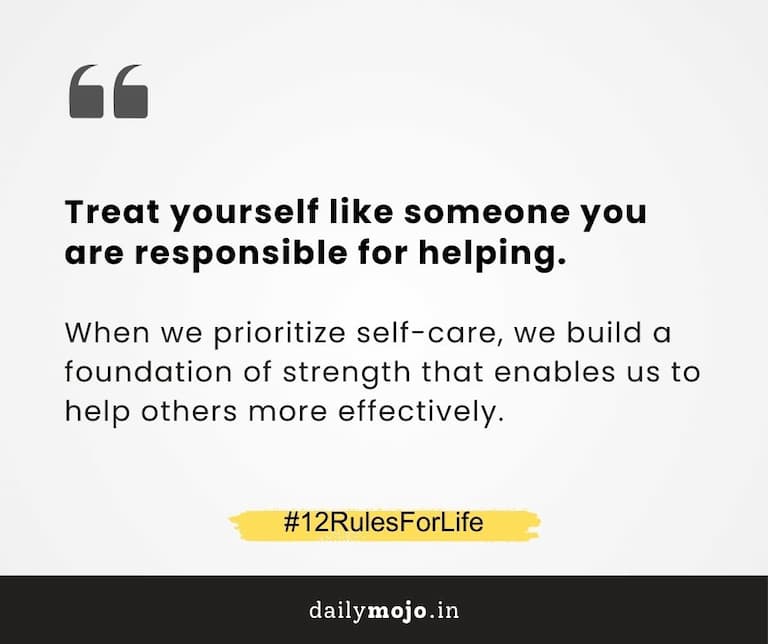
3. “Make friends with people who want the best for you.”
The people we surround ourselves with have a profound impact on our mindset, behaviour, and life trajectory. This rule encourages us to cultivate relationships with those who genuinely care about our well-being and growth. True friends challenge us to be our best selves and support us through adversity. By choosing companions who uplift and inspire us, we create a positive environment that nurtures our potential and contributes to a fulfilling life.
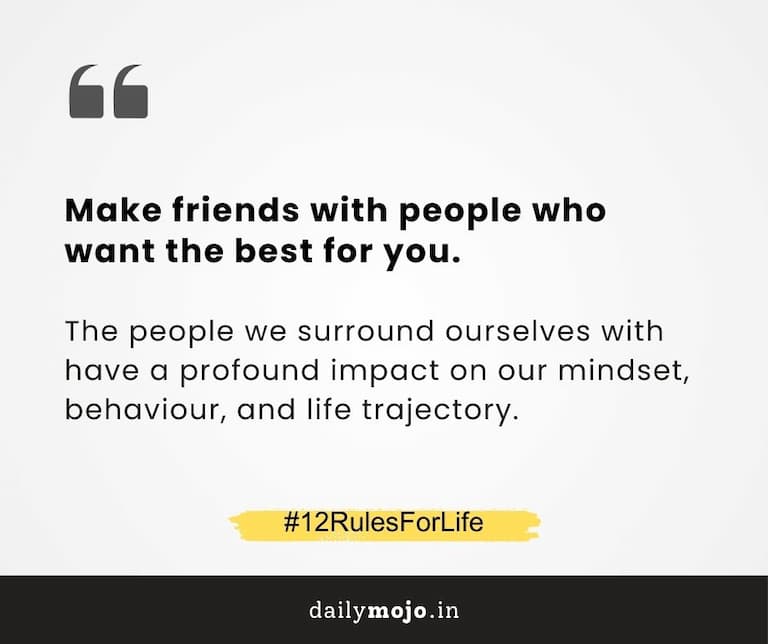
4. “Compare yourself to who you were yesterday, not to who someone else is today.”
In a world driven by comparison, it’s easy to feel inadequate when we measure ourselves against others. This rule suggests a healthier approach: focus on your personal growth and development. Instead of competing with others, strive to become a better version of yourself each day. By acknowledging your progress and learning from your experiences, you build confidence and motivation to continue evolving.

5. “Do not let your children do anything that makes you dislike them.”
This rule emphasizes the importance of setting boundaries and instilling discipline in children from a young age. It suggests that as caregivers, we must guide children toward behaviors that are socially acceptable and conducive to their growth. By allowing children to act in ways that may lead to resentment or dislike, we fail in our responsibility to prepare them for the real world. This rule encourages us to foster positive habits, empathy, and respect in children, creating a foundation for their future success and well-being.
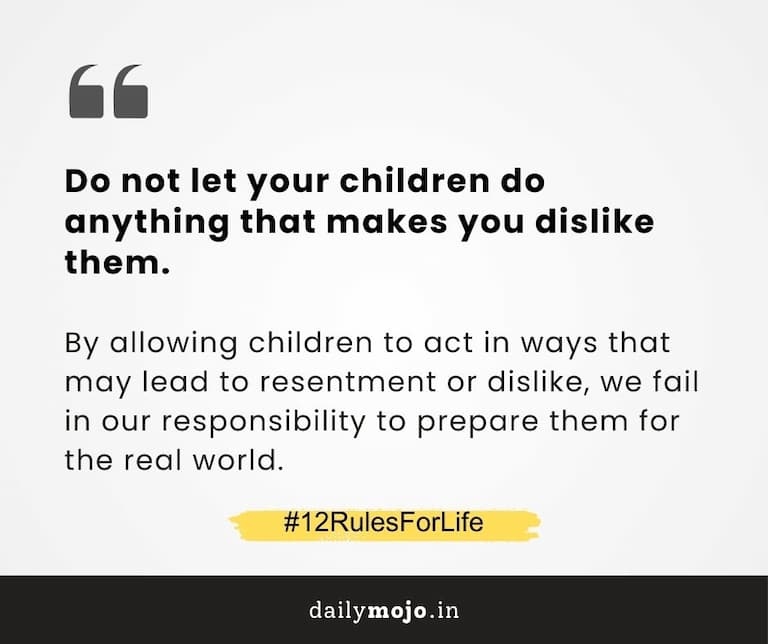
6. “Set your house in perfect order before you criticize the world.”
Before passing judgment on the world or blaming external circumstances for our problems, we should first take responsibility for our own lives. This rule urges us to focus on fixing what we can control — our own actions, behaviours, and surroundings. By creating order and harmony within our own lives, we become better equipped to face external challenges and contribute positively to the world around us. It’s about acknowledging our own flaws and working to improve ourselves first.

7. “Pursue what is meaningful, not what is expedient.”
In our fast-paced world, it’s tempting to choose the quickest or easiest path. However, this rule reminds us that true fulfilment comes from pursuing meaningful goals that align with our values, even when they require sacrifice and hard work. By focusing on what matters most and committing to long-term purpose over short-term gratification, we build a life that is rich in significance and satisfaction. Choosing meaning over convenience strengthens our character and brings deeper rewards.

8. “Tell the truth — or, at least, don’t lie.”
Honesty is fundamental to building trust and integrity in our relationships and in ourselves. This rule highlights the importance of being truthful, not just with others but also with ourselves. When we lie, even in small ways, we distort reality and undermine our credibility. By committing to truthfulness, we build a solid foundation for personal growth, authentic connections, and a life free of unnecessary complications and guilt. It’s about facing reality, no matter how difficult, and finding the courage to speak the truth.
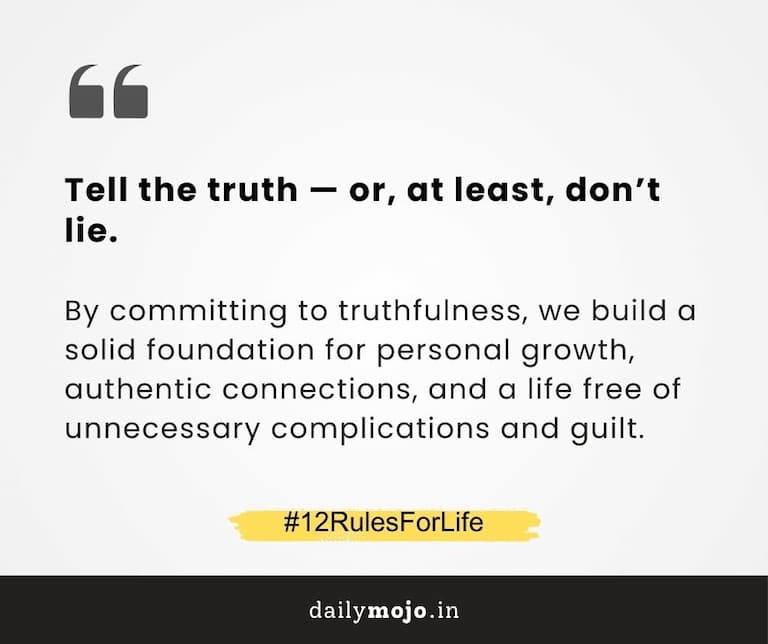
9. “Assume that the person you are listening to might know something you don’t.”
This rule encourages humility and open-mindedness in our interactions with others. Instead of dismissing different perspectives or rushing to prove ourselves right, we should approach conversations with the assumption that we can learn something valuable. By genuinely listening and considering others’ viewpoints, we expand our understanding and foster more meaningful connections. This attitude not only enriches our knowledge but also builds respect and trust with those around us.
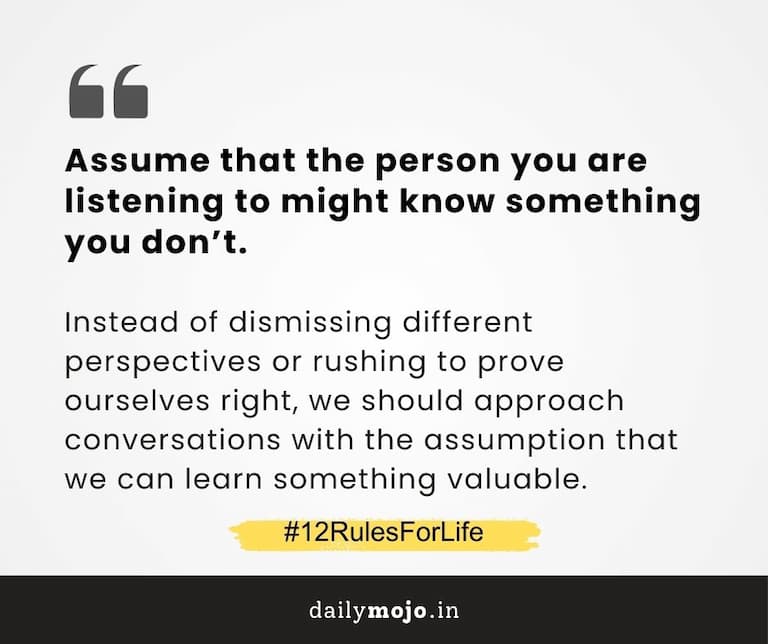
10. “Be precise in your speech.”
Clear communication is essential for conveying our thoughts and intentions accurately. This rule underscores the importance of being specific and precise when expressing ourselves. When we use vague or ambiguous language, we risk misunderstandings and conflict. By articulating our needs, concerns, and ideas clearly, we minimize confusion and foster healthier relationships. Precision in speech helps us navigate life’s complexities with clarity and purpose.
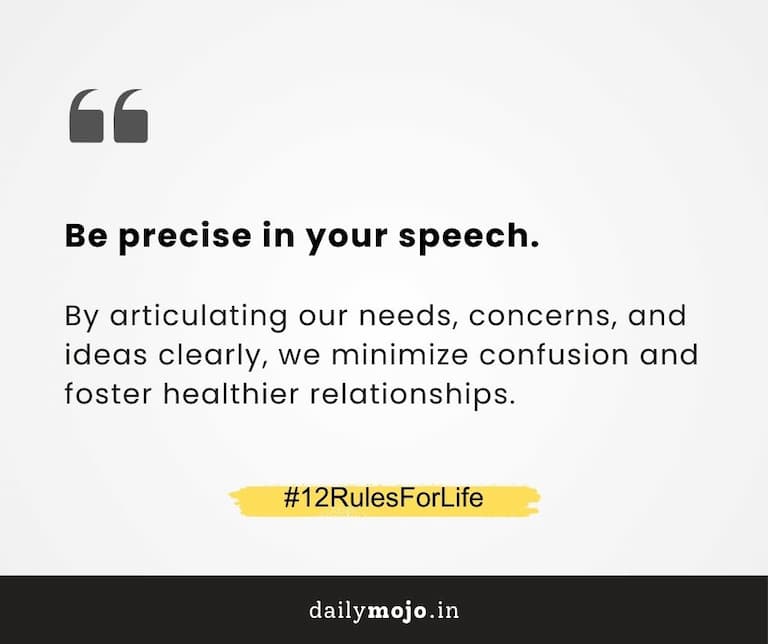
11. “Do not bother children when they are skateboarding.”
This rule is a metaphor for allowing people, especially the young, to take risks and learn from their experiences. Overprotecting or constantly intervening can hinder growth and resilience. The rule suggests that we must allow others the freedom to explore, make mistakes, and develop their own strength and skills. Life’s challenges are often the best teachers, and by stepping back, we enable others to find their path and learn valuable lessons about courage, creativity, and perseverance.
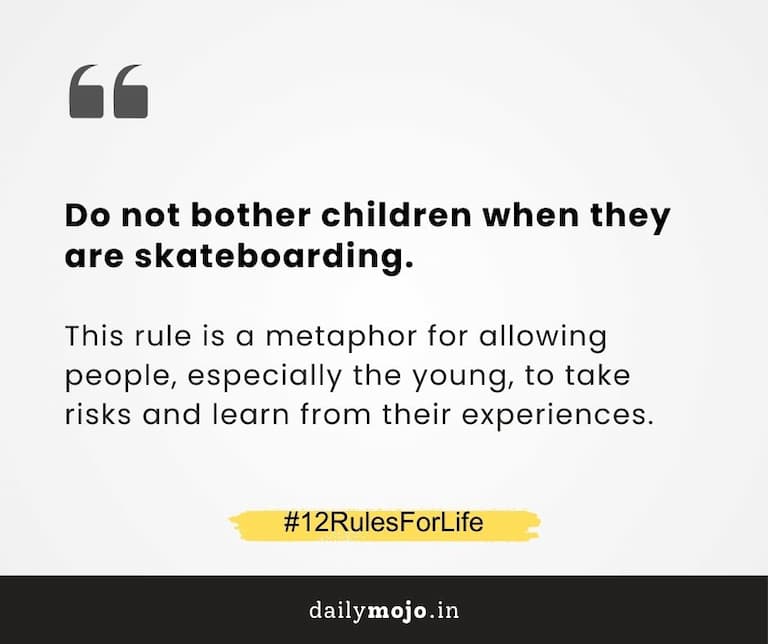
12. “Pet a cat when you encounter one on the street.”
This rule is a reminder to find moments of peace and joy amidst life’s challenges. Even in difficult times, small acts of kindness, appreciation, or a brief pause to enjoy something beautiful can help us cope with stress and maintain a positive outlook. It’s about being present in the moment, finding solace in simple pleasures, and understanding that even in hardship, there is room for small joys that can uplift us.

Conclusion
These 12 rules offer a framework for navigating life’s complexities with strength, integrity, and purpose. By embracing these principles, we can foster personal growth and create a more meaningful existence.
If you found these insights valuable, please share this post with others who might benefit from these lessons.